Take 40 Australia: The inside story
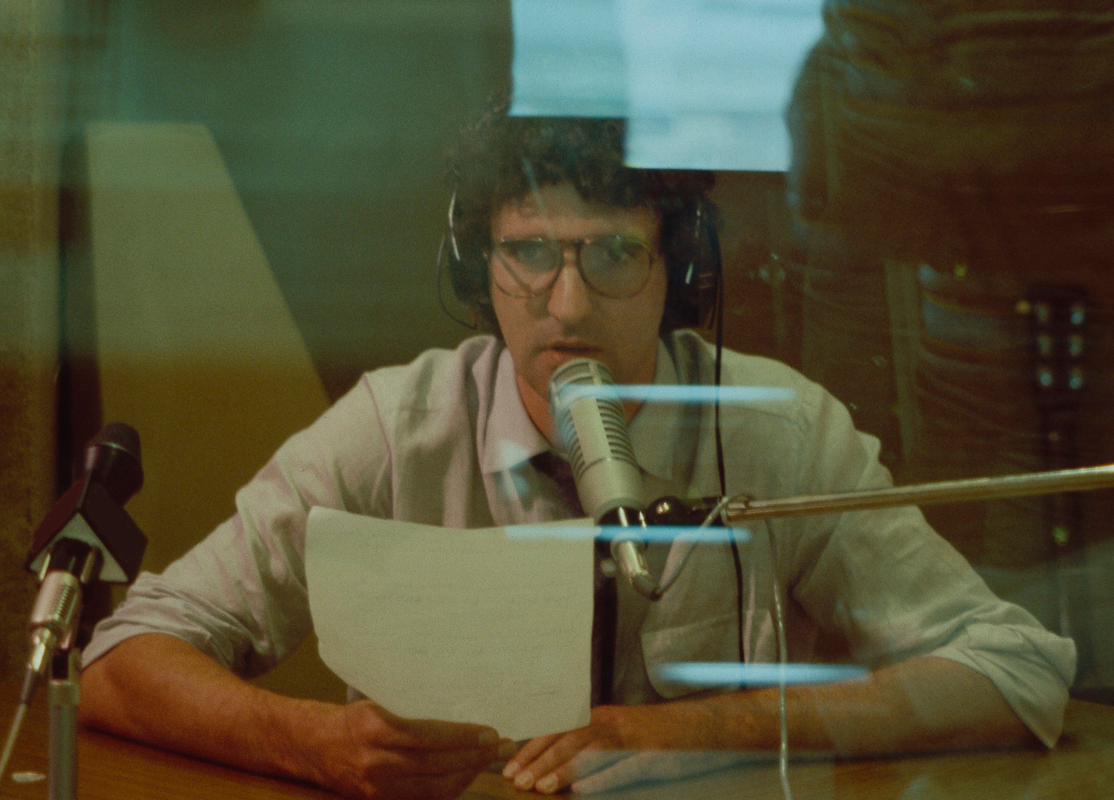
It was the early 80s in Melbourne and Tony McGinn was having a very bad day.
Aged 21, the man who would become Australia’s radio syndication pioneer was drowning his sorrows at the Croydon Hotel, not far from Fox FM headquarters in Nunawading.
McGinn – founder of MCM Entertainment Group – tells Radio Today “That particular day, I’d been fired from sales at Fox FM. I’d been there for about 6 months.”
McGinn says it had basically been decided that he wasn’t cut out to be a salesman.
Sitting at the pub, McGinn could hear Fox FM in the background. A promo for Casey Kasem’s American Top 40 came on.
McGinn had already had numerous conversations with Barry Bissell – who was then the Program Director at Fox – questioning why Australian radio didn’t have its own Top 40 countdown.
Hearing the Casey Kasem promo in the pub that day was the catalyst.
McGinn made up his mind then and there that Australia would have its own Top 40 countdown.
McGinn says “It was at that stage – maybe on my fourth beer – I decided I was going to have the resolve to do this, no matter what.”
And that’s how Take 40 Australia was born.
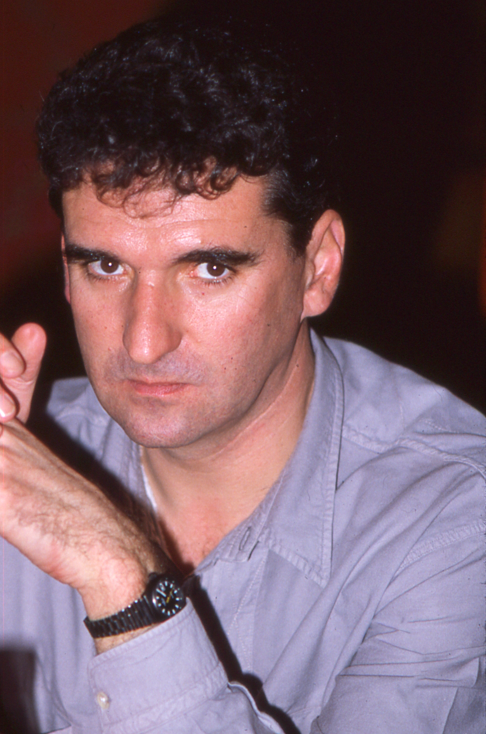
Starting in 1984, it would eventually be broadcast each week to a national audience of over 1.2 million listeners, becoming the nation’s first and longest running radio music countdown.
For a generation brought up on Big Ms, bandanas and The Breakfast Club, Take 40 Australia was a weekly staple.
Each week, Bissell counted down the nation’s top 40 singles.
Cassette tape at the ready, fingers poised over the record button, listeners would eagerly (if not illegally) wait to tape their favourite song.
Often, they’d get a bonus snippet of Bissell’s voice over the top of the track.
Bissell has lost count of the number people who’ve complained about that over the years.
He tells Radio Today “We got so many letters of abuse. People were like ‘Can you tell Barry Bissell to stop ****ing talking over the front of the songs?!’”
But as Bissell explains, it was all smoke and mirrors.
“I did the voice track separately and then it was packaged with the music,” he says.
To get the ball rolling, the late Ed Nimmervoll – who started the Go-Set music magazine back in the sixties – was recruited to write a radio show with the nation’s top forty songs.
McGinn – who regards Nimmervoll as an integral part of the show’s success – says at that stage, no ARIA chart existed.
“(Music retailer) Brash’s used to have a chart of their own. That was the most official chart in Australia at the time.”
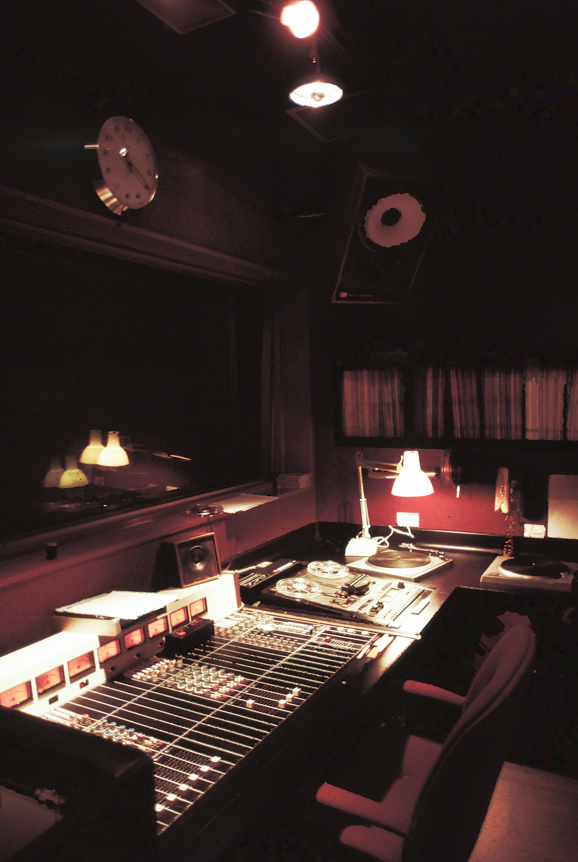
Produced by Nigel Haines, Take 40 Australia started out surprisingly small. The show was recorded in a studio at Fox FM (pictured above) at 7.30 on a Monday morning.
McGinn dubbed the show from the East Doncaster share house he was renting with some mates.
“I’d hocked my credit cards and got a whole lot of B77 Revox reel to reel tape machines. We built a wooden shelving system where all these machines sat.”
“Nigel was being incredibly generous, because I was paying him pocket money to do it, basically.”
“I’d go up to Fox and pick up the master tapes, then run back to the share house.”
One of the bedrooms became a dubbing suite, and it sounded for all the world like it was inhabited by chipmunks.
“I’d basically run a 48 hour day of dubbing and duplicating the show at double speed,” says McGinn.
Having done a deal with a freight business for the distribution side of things, McGinn says neighbours became suspicious of the constant stream of delivery trucks backing up in the driveway.
“I’m sure at one stage they thought we were running a drug couriering business,” McGinn chuckles.
“But we couldn’t afford to leave the tapes at the radio station.”
“’When we were at our peak, still running on tape, we were running in 85 radio markets, I reckon there was probably 50, maybe 100 tonnes of Ampex tapes flying around, dotted all over the bloody country.”
“It was a very cumbersome way of pioneering syndication in Australia.”
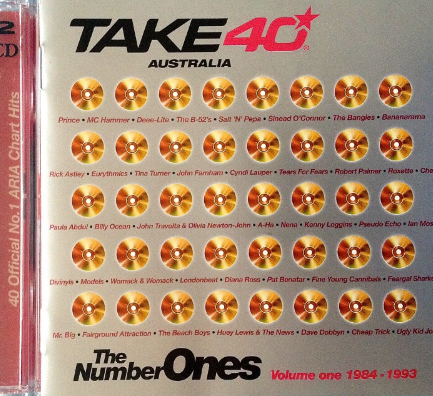
In the beginning, Fox was the only radio station putting Take 40 Australia to air.
“I was the Program Director,” laughs Bissell. “Go figure!”
The second station to broadcast Take 40 Australia was 3SH in Swan Hill, where Bissell grew up.
McGinn wasted no time trying to market the show, and so began the previously unchartered journey into barter syndication.
Coca Cola seemed the logical target, given its decades of involvement in the Australian music industry.
“I opened the Yellow Pages – being the naïve salesman that I was,” says McGinn.
Feeling out of his depth, McGinn sought the assistance of Mark Newstead, who was then at the Radio Marketing Bureau.
“I said ‘Mark, I’ve never written a proposal.’ And now I’m talking to a major agency client, a national advertiser. I need your help.’”
Newstead obliged.
“It was a very innovative proposal, because what we were proposing had never been proposed before,” says McGinn.
“We’re going to syndicate this show. We’re going string radio stations together like a daisy chain and then you’re going to buy the ads in that daisy chain. And the more we add, the more it’s going to cost you, but the more people you’ll reach.”
McGinn made an appointment to see the Marketing Manager at Coca Cola and promptly drove out to Moorabbin, and what he THOUGHT was Coke’s head office.
“It was actually Coca Cola Bottlers Melbourne.”
“Little did I know there were 13 Coca Cola Bottlers spread all over Australia. They were basically mini-franchise businesses in partnership with the American company.”
McGinn says the Marketing Manager at Moorabbin loved the idea but was quick to inform Tony “I’m only one of 13 votes.”
He encouraged McGinn to get himself up to head office in Sydney.
McGinn says the Marketing Manager set up the appointment on his behalf, so that Coca Cola executives were on the front foot when he arrived.
Landing the deal, McGinn remembers the fanfare.
“We knew how to celebrate in those days.”
“But it’s one of those classic scenarios where you stand there and look at yourself in the mirror and you say ‘Oh God, what have we done? We’ve got to do it now.”
Bissell recalls things moved swiftly from there.
“I remember when we got to 100 stations that were running it,” he says.
“We’d saturated the market by that stage. It was in every major market in Australia. It was quite a feat.”
Award winning creative producer Dave Carter would also become part of the Take 40 programming team.
Carter tells Radio Today “Everybody loved Take 40.”
“The thing about Take 40 was that it always felt like the official chart. I know from working in regional radio stations, we couldn’t take Take 40 at some of the stations I was at, because a competitor had it in the marketplace.”
“It was like ‘If only we had Take 40, we’d be such a better radio station!’”
“It was the production values, the sound, Barry Bissell. It was far and away the best program out there.”
“It was also the easiest program to market, from my point of view, because everybody wanted it, and there was nothing quite like it.”
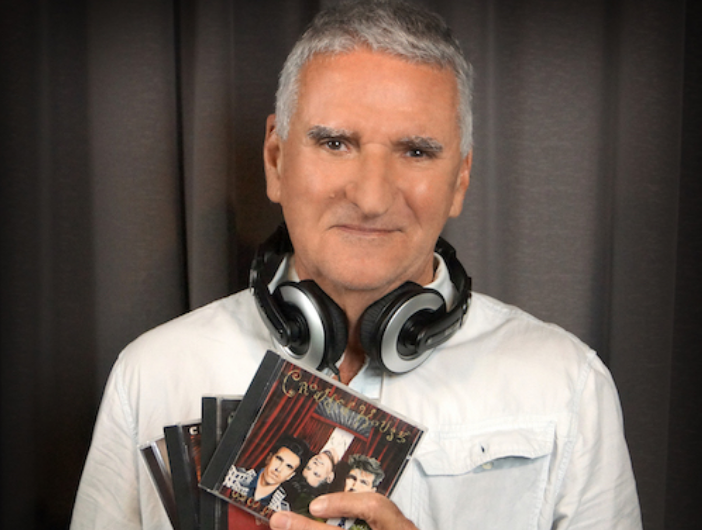
Bissell says Take 40 Australia showcased an amazing era for music.
“The biggest song of the year in 1984 – when we began – was Bruce Springsteen’s Dancing in the Dark.”
“The number two best selling record wasn’t even a song. It was Billy Birmingham’s The Twelfth Man.”
Barry notes that during his years of hosting Take 40 Australia, the music – and musical tastes – evolved.
“I remember the 1000th show. We had a big do up in Sydney to celebrate it.”
“By that stage, the music had changed considerably. There was a lot of R&B and rap and stuff, which I found very hard to introduce with any level of affection.”
“Mind you, there was still some great stuff around, but there was a lot of stuff that I really didn’t relate to.”
Two decades after the show began, Fox came under new management and Bissell’s days of hosting Take 40 Australia came to an end.
“It wasn’t my call,” Bissell says.
In November 2004, Osher Günsberg replaced Barry as host. A succession of hosts including Kyle and Jackie O would follow before the show finally came to an end after 32 years.
Its final broadcast went to air on Saturday, September 3rd, 2016.
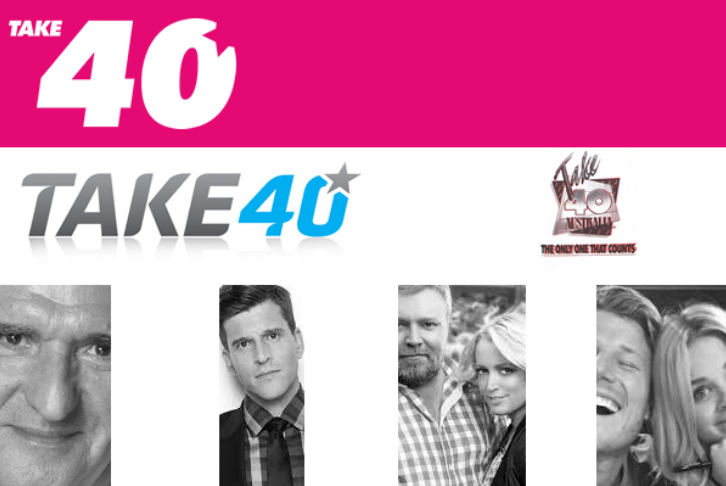
To this day, Bissell says people still want to chat to him about the Take 40 days.
“It amazes me sometimes. A girl in a shop said ‘Aren’t you that guy who used to do the countdown? There are a lot of people now who I think of as being quite old, who say ‘Oh, I listened to you every night!’”
Even a doctor once said to Barry “I grew up with you. The whole time I was studying medicine, you were on the radio every Saturday night.”
Bissell says there was an important element that set Take 40 Australia apart.
“The whole point of the show had always been that the star of the show was the music and the interviews.”
“It wasn’t about me.”
And while it’s now been consigned to radio juggernaut history, the memory of Take 40 Australia lives on.
“It was a fantastic period of my life,” Bissell says. “I loved it.”
McGinn feels the same.
“The four people that created that show and built the foundation to take it through the incredible journey it had are myself, Barry Bissell, Nigel Haines and Ed Nimmervoll,” he says.
“It was fantastic fun. It really was.”
*Original Take 40 Australia photos courtesy of Nigel Haines.
*Barry Bissell photo with CDs courtesy Andy Wells Media.
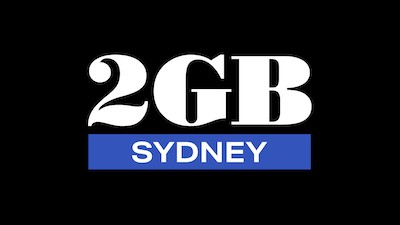


There are community stations who play nostalgic old Casey Kasem countdowns. Surely there are commercial stations who’d replay old Take 40 Australia episodes.
I was traditionally an EON/MMM listener but always switched to Fox to hear Take 40. Remember travelling to the NT in the early 90’s and hearing it on every regional station on a Saturday. Was a great show.
What a great read, an insightful and entertaining explanation about what we used to listen to growing up. Thankyou.
More stories like this please! What a pleasure to read
Nigel Haines , Barry Bissell – how could you go wrong .
A great read.
Thank you.
So many great memories of loading the reels onto the Tascam’s.
The team at MCM made it so easy.Packaged and delivered professionally,excellent running sheets and an awesome product.Simple to get to air.
I however managed to screw up the tape orders one Sunday morning,playing tape three ahead of tape two,and didn’t notice until 25 minutes later.
Got no calls from any punters or the PD/GM.(Maybe no one was listening).
I did however get a call one day when I changed the pitch control to shave off about 90 seconds to time up to the news.Kylie Minogue didn’t sound much different but Bazz sounded a wee bit on the falsetto side.
He still sounded excellent though.
Nice to see the wonderful Dave Carter mentioned here.
The man was a true professional.